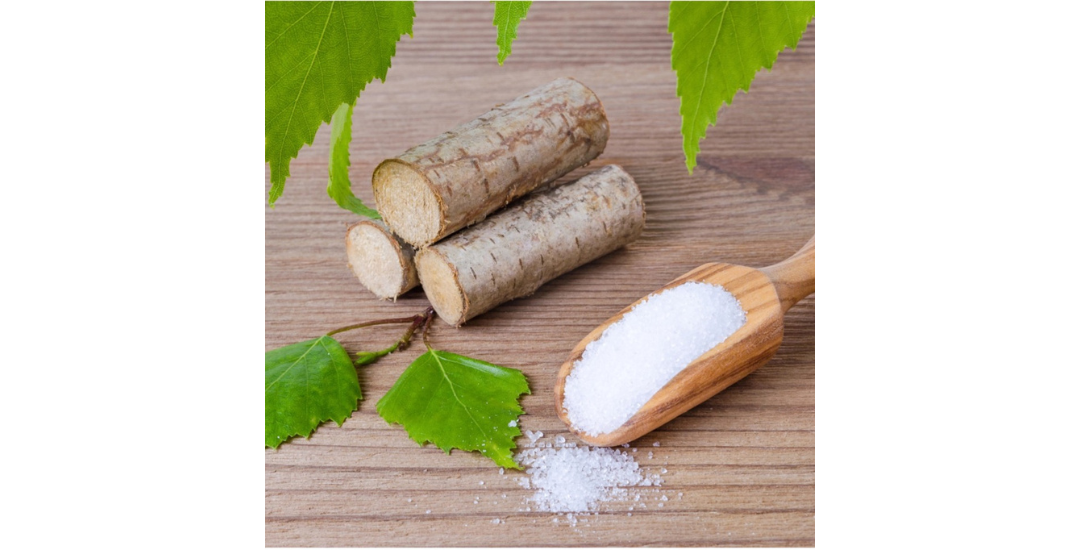The Sweet Solution for Dental Health-Naturally

Discover the Sweet Benefits of Xylitol
Are you searching for a natural way to boost your dental health and enjoy a sweet treat without the guilt? Xylitol is a naturally occurring sugar alcohol that’s making headlines in dental care and wellness circles. First isolated in 1891, xylitol gained popularity during World War II in Finland as a sugar substitute. By the 1970s, Finnish researchers discovered its remarkable dental benefits. Today, xylitol is derived from birch bark, corn cobs, or coconut husks and is celebrated as a low-calorie sweetener and a powerful tool for oral health.
Science-Backed Dental Health Benefits of Xylitol
- Reduces Dental Caries (Cavities): Xylitol inhibits cavity-causing bacteria like Streptococcus mutans by disrupting their ability to stick to teeth and metabolize sugars. (1)
- Prevents Plaque Formation: Regular use of xylitol gum or toothpaste reduces plaque buildup by up to 50%, limiting bacterial growth and acid production that lead to tartar and decay. (2)
- Lowers Risk of Ear Infections: Xylitol’s antibacterial power extends to respiratory health. Studies show daily xylitol use in children cuts the risk of acute otitis media by 22–30%. (3)
- Safe for Diabetics: With a glycemic index of just 7, xylitol won’t spike blood sugar, making it ideal for people with diabetes. (4)
- Supports a Healthy Oral Microbiome: Xylitol doesn’t ferment in the mouth. It promotes beneficial bacteria and reduces acidity for a healthier oral environment. (1)
How Xylitol Works for Oral Health

- Antibacterial Action: Disrupts energy production of harmful bacteria, weakening their ability to cause cavities. (1)
- Stimulates Saliva: Chewing xylitol gum increases saliva flow, neutralizing acids and helping remineralize tooth enamel. (5)
- Prevents Biofilm Formation: Limits bacterial adhesion, stopping plaque from hardening into tartar. (6)
Is Xylitol Safe?
- For Humans: Xylitol is generally safe, though large amounts may cause digestive upset like bloating or diarrhea.
- For Pets: Warning! Xylitol is highly toxic to dogs and can cause severe hypoglycemia or liver failure. Keep all xylitol products away from pets. (7)
The Takeaway: Why Choose Xylitol for Dental Health?
Xylitol is more than just a sugar substitute—it’s a science-backed solution for fighting cavities, reducing plaque, and supporting overall oral health. While not a replacement for brushing or flossing, adding xylitol gum, toothpaste, or mints to your daily routine can make a real difference. As research continues, xylitol stands out as a simple, effective way to protect your smile and overall wellness.
Check out our trusted Dental Health Probiotic here
References
- Söderling, E., & Pienihäkkinen, K. (2012). Effect of xylitol on cariogenic oral streptococci.
- Söderling E, Pienihäkkinen K. (2022). Effects of xylitol on dental plaque: A systematic review.
- Zarpazhooh A, et al. (2016). Xylitol for preventing acute otitis media in children.
- Livesey, G. (2003). Health potential of polyols as sugar replacers.
- Mäkinen KK, et al. (1996). Properties of saliva and plaque after long-term xylitol use.
- Badet C, et al. (2008). Effect of xylitol on oral biofilm.
- ASPCA. People foods to avoid feeding your pets.
Written By Brooke Lounsbury










